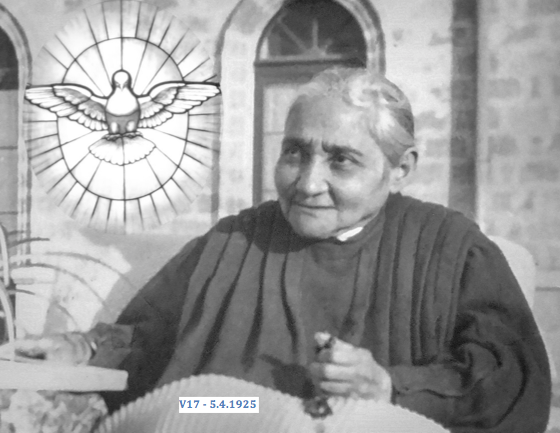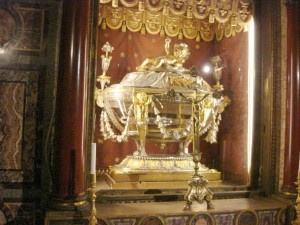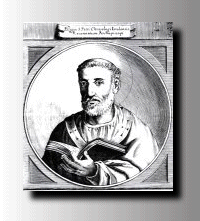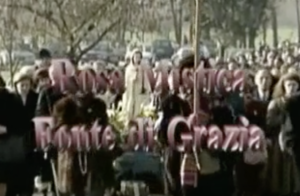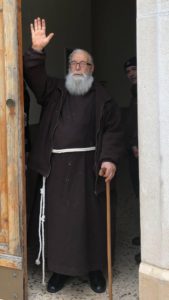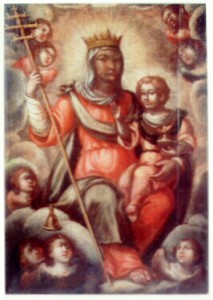Leading an easier life is the ideal to which all aim, a more direct life without difficulties, without having to opt for choices. Instead, we are continuously subjected to evaluate situations and make decisions, some of which are easier, others more difficult, others literally throw us into state of crisis. This could depend, not only, on a complicated situation, but above all on our mood or on the fact that we are people strongly uncertain.
In those cases, the support of someone who can help us to open a gate in the darkness that we have before us becomes really providential and this also for a natural need of human beings to live and share with others their own existence, to be able to ask, give or receive help when the need arises.
A need that is totally spiritual, whereas with the corporal works of mercy, although a material need is satisfied we are reborn, however, also in spirit.
The hardest task belongs to the spirit both when we have to ask for, to disclose our needs, both when there is a need for action. The spiritual needs as they are less clear than the corporal ones, can also be concealed, but sooner or later they arise and a help request comes out.
The spiritual works of mercy themselves are more difficult to practice, they requires relationships of true brotherhood, respect and listening from the heart and above all humility and mutual trust.
To have doubts, if this is not a pathological condition, is natural in life, it is part of our limitations, of our growth. The novelty, what we do not know always scares us a little, fear is a primordial feeling that is innate in man, and makes us experience some initial indecision, but it does not have a negative meaning, it can help to protect us from unpleasant situations.
The act of doubting also means that we must not content ourselves, but we must go beyond our securities for a natural instinct of man to know and experience, enriching us with some advice that can be really valuable.
You must be careful to not depend on others to make your own choices, but you should accept the advice through a critical examination, considering the wisdom of one who advises, so that you do not lack your responsibility and freedom, ” Take the advice of sensible people, and never treat any useful advice lightly.”(Tobit 4:18).
Also the act of advising has a double meaning: an advice can be good, if it is given with selflessness and spirit of compassion for the other’s situation, that is when you empathize with the other; but it could also be a bad advice, when you do not know enough about a subject to be able to assert your opinion or when, some personal interests, both material and spiritual are concealed behind the advice, “Don’t ask a buyer for advice about selling and a stingy person about gratitude” ( Sir 37:7 to 11).
The Scriptures in fact warn against those who give advice to avoid the risk of being manipulated. Before asking advice it is good that we wander about the person that we have to address and on what we should receive advice . Not everyone can advise on everything. The text of Sirach is very clear: “Anyone can give advice, but some people do so only in their own interest. Be careful when somebody offers you advice. Find out first what his interest in the matter is. “(Sirach 37:7 8).
The text seems willing to dissuade us from seeking help or moral support, but the advice is to be wary of those who want to give advice, apparently they want to encourage the needy, but essentially they want to consider themselves. We might be tempted to want to affirm our decision on the other, being convinced that ours is the appropriate advice. The intention may be good, but the advice may also be a gaffe. We often give some suggestions as we lived the same experience, but we do not consider the factors that determine it and the other’s feelings. The very strong certainties or being overconfident are two negative aspects of the act of advising.
This also happens to those who live faith as a kind of totalitarian regime, but it is not so. The Christian faith does not impose itself, but it is indulgent and respectful of freedom, it is offered to the man who freely makes his choices. Therefore, in order to be good, the advice must be an extract of the Christian faith which is based on humility, trust and certainties that can be demonstrated only through Jesus’ humanity. In fact we can be experts and teachers of the Christian Law, but this does not imply that we are excellent advisors, if we are not connected to each other in a relationship of empathy.
The greatest example to practice this work of mercy is given to us by Jesus. He helped all the people that turned to Him by showing their doubts. For all He found words of consolation and explanation. He encouraged people to solve their doubts and to believe in God, all with gentleness and humility, for His trust in the Father was very great.
To help the doubtful is therefore necessary that we first believe in God and in the teaching of the Church, or, as Jesus teaches us, we will become like a blind man who leads a blind man, and we both will fall into a pit (Luke 6,39- 42). As the Blessed Virgin Mary also did, it is necessary for the fulfillment of this works of mercy that we follow Jesus, become His true followers and put into practice His teachings on the basis of His greatest attribute: Love.
Luisa, too, was not free from doubting. Certainly, the constant presence of Jesus at her side did not make her arrogant nor she was spared from asking herself questions and from fearing that she was mistaken about her state. In her humility the doubt that often assailed her was that it wasn’t always Jesus who appeared to her. However she, aware of her nothingness, remedied her torment, by asking the figure she had before her, and that she could recognize as Jesus, a sign cross and a prayer, and in this way she regained peace.
Jesus Himself taught her that the most effective means for the soul to be freed of every doubt was to protest before Heaven and earth that she does not want to offend God and that she does not want to consent to any temptation.
Another of Luisa’s constant doubts concerned the fact that her state was not God’s will, but it was her own fantasy.
Jesus reassures her by telling her that the surest sign in order to know whether a state is His Will is when one feels the strength to sustain that state and it is also His Will for her to be caught by the fear that her state may not be His Will; this fear and doubt purifies her of every slightest defect.
As Jesus dispels her many doubts, He teaches her, conforms her to the Divine Will through her training and education to trust, simplicity, which Luisa passed down, in turn, to those who went to her for advice. “Many people went to her to express their needs of the spirit and body…. .And everyone had,as an answer to their problems, the loving conformity to the Divine Will, which not only easy the pain and makes it praiseworthy, it also sheds light on what to do“ [1].
Knowing how to counsel is, therefore, a gift that we should use first with ourselves, through a self-examination in front of God, so that He may help us to judge our humility and our faith in Him and our ability to wait the divine light before acting wisely. And as in giving drink to the thirsty, water satisfies thirst removing it so the advice from a wise man, becomes a source of life that responds to the doubters, dissolving their doubts about faith.
Counseling the doubters is a condition to approach life together, walking side by side, recognizing and learning from those who have the gifts to do that: wisdom, age, the priestly ministry. And since counsel is a gift of the Holy Spirit, of operating in harmony with God, let’s pray to the Holy Spirit to pour forth it on all humanity
[1] MARIA ROSARIA DEL GENIO, The Sun of My Will, Vatican City State, Libreria Editrice Vaticana, 2014, pag. 64
